The world of sports is always evolving, and today’s athletes aren’t just training their bodies—they’re biohacking their brains. From the Olympics to weekend 5Ks, athletes are hunting for any legal edge they can find. Enter nootropics: brain-boosting supplements that claim to sharpen focus, increase motivation, and even boost stamina. But do nootropics really work for athletic performance, or are they just another supplement trend?
Let’s dive into the science, the hype, and what real athletes are saying about nootropics for sports. Whether you’re chasing a PR, looking for better focus in competition, or simply want more energy for your workouts, here’s what you need to know about the brain-body connection in athletics.
What Are Nootropics and Why Are Athletes Interested?
Nootropics—sometimes called “smart drugs” or cognitive enhancers—are substances that support brain health, memory, attention, and mental energy. For athletes, nootropics promise an extra layer of performance: not just physical power, but also the mental edge needed to react faster, stay focused, and push through fatigue.
From caffeine and L-theanine to adaptogens and choline boosters, athletes are experimenting with a range of supplements in hopes of finding that “flow state” where mind and body work as one.
Mental Edge vs. Physical Edge
Sports are as much a mental game as a physical one. Sure, muscles matter—but so does staying calm under pressure, making split-second decisions, and staying locked in through long games or races. Nootropics aim to bridge that gap, helping athletes:
-
Stay alert and focused during high-pressure moments
-
Block out distractions (on and off the field)
-
Recover mentally after tough losses or grueling training sessions

The Science Behind Nootropics and Athletic Performance
What does the research say? While physical gains from supplements like protein and creatine are well-known, the science behind nootropics for athletes is still emerging—but it’s promising.
How Brain Function Impacts Sports Performance
Your brain controls reaction time, decision-making, motor coordination, and even the mental toughness to push through the “wall” during endurance events. When your brain is running at its best, your body follows.
-
Neurotransmitters like dopamine, acetylcholine, and norepinephrine are all involved in motivation, attention, and coordination.
-
Mental fatigue (not just muscle fatigue) is a major reason athletes underperform in long competitions.
-
“Choking” under pressure is often due to cognitive overload—not a lack of physical skill.
Cognitive Fatigue and Focus in Training and Competition
Cognitive fatigue can sneak up on athletes, especially during tournaments, late-night practices, or travel. Signs include:
-
Slower reaction times
-
Difficulty focusing on plays or instructions
-
Poor memory or forgetting routines
-
Lower motivation or drive to finish a tough set
Nootropics aim to counter these effects, helping athletes “stay in the zone” when it matters most.
Popular Nootropics Used by Athletes
Not all nootropics are created equal. Here are the most common supplements athletes reach for to boost their brainpower.
Natural Nootropics for Focus and Endurance
-
Caffeine: The original performance enhancer. In moderate doses, it boosts alertness, energy, and reaction time.
-
L-theanine: Found in green tea, it smooths out caffeine’s jitters and promotes calm focus.
-
Rhodiola rosea: An adaptogen that helps the body handle stress, fights mental fatigue, and improves endurance.
-
Lion’s mane mushroom: May support nerve growth and cognitive clarity; popular among endurance athletes and biohackers.
-
Panax ginseng: Traditionally used to enhance physical stamina and mental performance.
Synthetic Nootropics and Their Controversy
-
Racetams (piracetam, aniracetam): Used for memory and focus, but not FDA-approved for use in the US.
-
Modafinil: A prescription wakefulness drug, sometimes used off-label for extreme focus or long competitions (note: banned by many sports organizations).
Natural nootropics are generally safer and legal, while some synthetics carry more risk and legal concerns in competitive sports.
Benefits of Nootropics for Athletes
Why are athletes—including pros—turning to nootropics? Here’s what the best evidence (and user stories) suggest.
Boosting Concentration, Motivation, and Reaction Time
-
Sharper focus: Nootropics like caffeine, L-theanine, and rhodiola may help athletes block out distractions and maintain peak attention during practice and play.
-
Faster reactions: Some nootropics support neurotransmitters involved in motor speed—important in sports where split-second timing matters.
-
Motivation and drive: Dopamine-boosting nootropics (like tyrosine or mucuna pruriens) can help athletes push through mental barriers and stay engaged in long training sessions.
Enhancing Stamina and Stress Resilience
-
Endurance: By supporting the brain’s energy systems, nootropics like lion’s mane and adaptogens help athletes perform longer without feeling mentally exhausted.
-
Stress management: Rhodiola and ashwagandha are favorites for athletes dealing with competition anxiety or burnout.
-
Better recovery: Nootropics that support sleep and relaxation (like magnesium or theanine) help athletes bounce back faster between games or workouts.
While the research is still growing, many athletes report feeling more “dialed in,” calm, and mentally energized with the right stack.

Risks, Side Effects, and Legal Issues in Sports
Before you try any new supplement, it’s crucial to know the risks—especially in sports, where anti-doping rules are strict.
Potential Drawbacks and Doping Regulations>
-
Side effects: Too much caffeine can cause jitters, insomnia, or heart palpitations. Some adaptogens can upset the stomach. Racetams and synthetic nootropics may have unknown long-term effects.
-
Banned substances: Some synthetic nootropics (like modafinil or certain racetams) are on the World Anti-Doping Agency (WADA) banned list. Testing positive can mean disqualification, even for accidental use.
-
Quality concerns: Supplements are not tightly regulated. Contamination or mislabeling can be a real issue—always choose trusted brands.
Safe Use and What to Avoid
-
Stick with well-researched, natural nootropics.
-
Avoid anything that’s prescription-only or not FDA-approved if you compete.
-
Check your sport’s banned substance list before trying a new supplement.
-
Listen to your body and track side effects.
How to Build a Brain-Boosting Stack for Sports
Ready to experiment with nootropics for focus, stamina, or motivation? Here’s how to do it right—whether you’re an elite competitor or just want to level up your weekend game.
Key Ingredients to Consider
-
Caffeine + L-theanine: This is the gold-standard “starter stack.” You get the alertness of caffeine with the calm focus of L-theanine—no jitters or crash. Perfect for game days or long training sessions.
-
Rhodiola rosea: Great for mental and physical stamina, especially if you’re training hard or under a lot of stress.
-
Lion’s mane mushroom: May support nerve growth, faster recovery, and clear-headed thinking.
-
Tyrosine: An amino acid that boosts dopamine—helpful before intense, high-pressure events.
-
Magnesium: Supports relaxation, sleep, and recovery, especially if your workouts are intense.
Mixing too many ingredients isn’t necessary—pick two or three that match your goals and see how your body and mind respond.
Timing, Dosing, and Cycling for Best Results
-
Timing matters: Take your nootropic stack 30–60 minutes before your workout or game for best results.
-
Start low, go slow: Begin with the lowest effective dose. Everyone’s brain is different.
-
Cycle your supplements: Use nootropics only on high-performance days or cycle them weekly to prevent tolerance and dependence.
Track your performance and mood in a journal or app. This helps you tweak your stack for your unique needs.
Real-World Stories: Athletes Who Use Nootropics
You’re not alone if you’re curious about brain supplements. Athletes at all levels—runners, CrossFitters, gamers, even weekend warriors—are talking about their nootropic experiences.
Success Stories and Lessons Learned
-
The high school soccer captain: Swears by a combo of caffeine and L-theanine for focus during big games—no more shaky legs or mid-match brain fog.
-
The marathon runner: Uses rhodiola and lion’s mane to stay clear-headed during long training runs, especially on hot, stressful days.
-
The e-sports competitor: Prefers tyrosine and magnesium for mental stamina in long tournaments, helping to avoid burnout and stay sharp.
-
The masters-level tennis player: Finds that cutting back on caffeine (and adding ashwagandha for stress) has improved both focus and recovery.
The common thread? Smart experimentation, tracking, and a focus on clean, reputable supplements.
Warnings from Pros and Coaches
-
Don’t overdo it: More isn’t always better. Too many stimulants can wreck your sleep or cause anxiety.
-
Beware of “miracle pills”: Supplements alone won’t turn you into an Olympian. Foundation matters—sleep, nutrition, and practice come first.
-
Check banned substance lists: Even “natural” supplements can get you in trouble if they’re tainted or not approved by your sport.
Combining Nootropics With Healthy Habits for Peak Performance
No supplement can make up for poor lifestyle choices. For real gains—mental and physical—combine your stack with brain-friendly habits.
Nutrition, Sleep, and Recovery
-
Eat for your brain: Include lean proteins, whole grains, healthy fats, and lots of colorful fruits and veggies for the best brain (and body) fuel.
-
Prioritize sleep: Even the best nootropics can’t replace 7–9 hours of restful sleep.
-
Plan rest days: Your brain and body need downtime to recover and adapt.
Mental Training and Visualization
-
Meditation and breathwork: Lower stress and help you “reset” during high-pressure moments.
-
Visualization: Mentally rehearsing your sport or game can enhance focus, confidence, and performance—dopamine-boosting nootropics may amplify these effects.
The key is balance: smart supplementation, strong habits, and a positive mindset.
Conclusion: The Future of Nootropics in Sports
Nootropics are changing the way athletes train, compete, and recover. While the science is still catching up, real-world stories suggest that the right stack can help athletes find their mental edge, stay focused, and bounce back from fatigue. But remember—supplements are only as good as the foundation you build them on.
Whether you’re chasing a new PR or just want to feel more “locked in” at your next game, start simple, listen to your body, and always put brain health first.
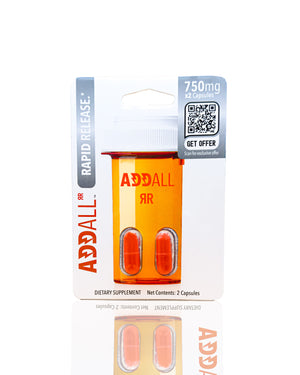
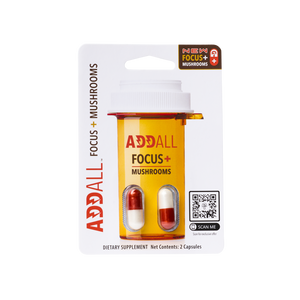


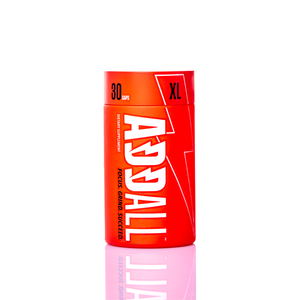
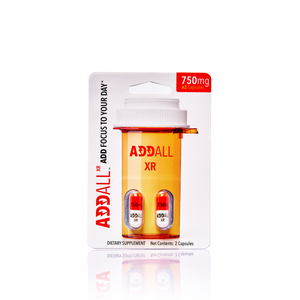

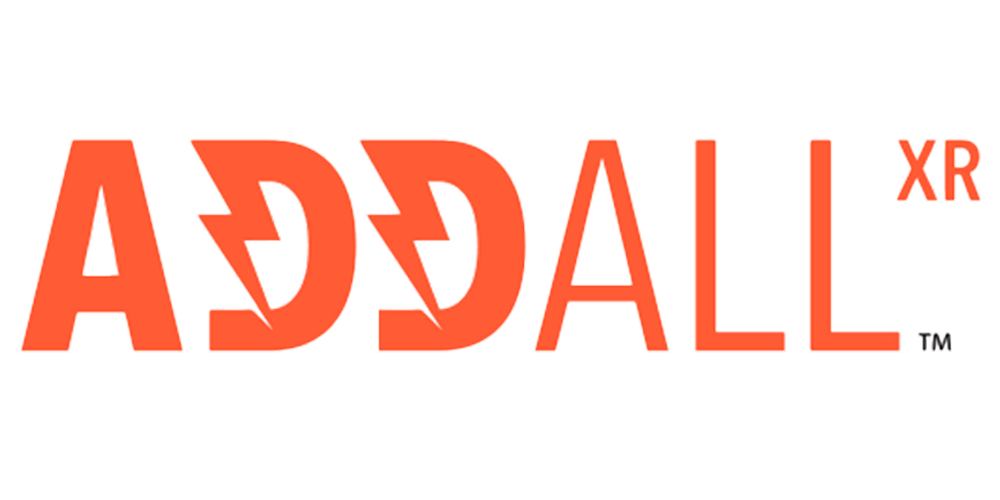
 Addall XL
Addall XL
 Addall XR
Addall XR Addall
Addall
 Addall
Addall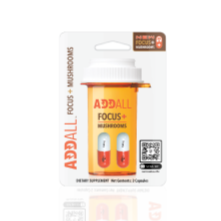 Addall
Addall Addall
Addall merch
merch
 Compare
Compare



















































